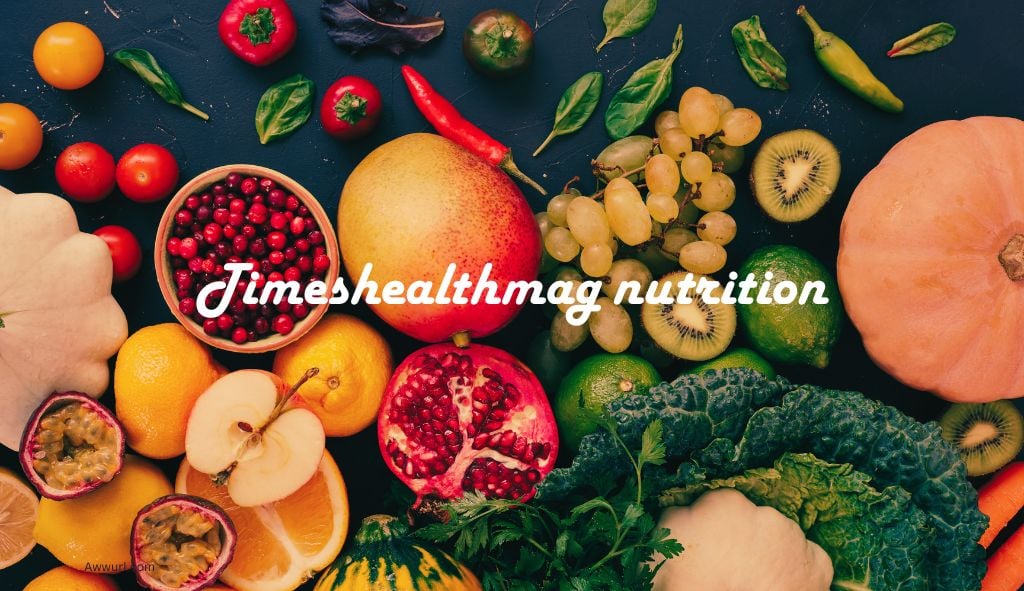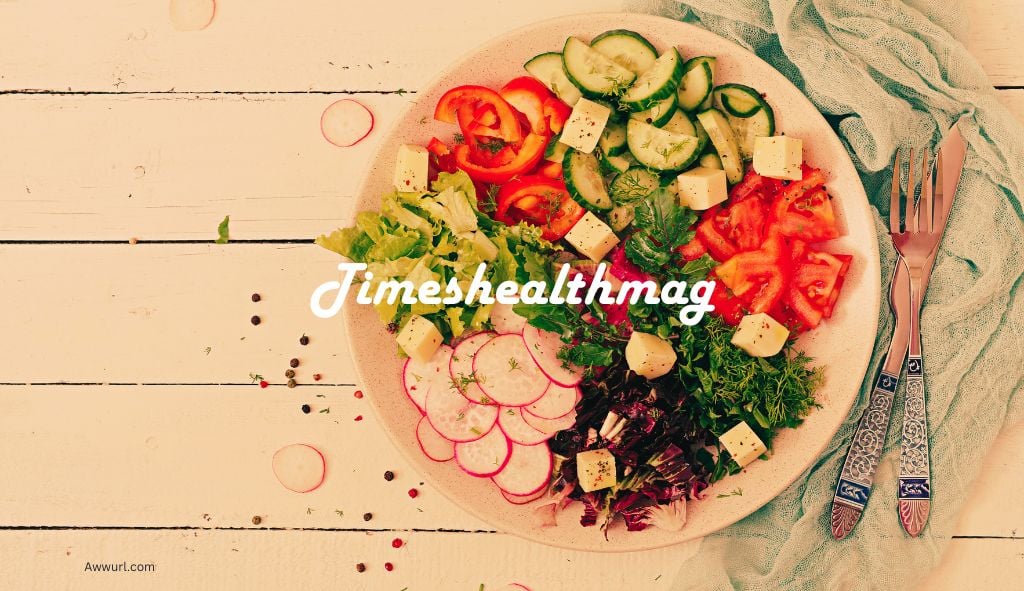
TimesHealthMag nutrition offers evidence-based dietary guidance and resources from health experts, helping readers make informed food choices for better overall wellness.
About TimesHealthMag Nutrition
TimesHealthMag.com has become a trusted source for health and nutrition information in the digital world. The nutrition section of this platform provides readers with science-backed content designed to help them make better food choices. Unlike many health websites that focus on trending diets or quick fixes, TimesHealthMag aims to deliver reliable information based on current research and expert knowledge.
What Makes TimesHealthMag Stand Out
The content on TimesHealthMag is created by qualified professionals including registered dietitians, nutritionists, and medical experts. This ensures that the advice provided is not only practical but also grounded in science. The platform covers a wide range of topics from basic nutrition principles to specific dietary approaches, making it suitable for beginners and those with more advanced knowledge.
TimesHealthMag nutrition articles follow a straightforward approach, breaking down complex concepts into easy-to-understand information. This makes scientific nutrition knowledge accessible to readers of various educational backgrounds. The content is regularly updated to reflect the latest research findings, keeping readers informed about current best practices in nutrition.
Content Categories on TimesHealthMag
The nutrition section of TimesHealthMag is organized into several key categories:
Nutrition guides for different food groups
Healthy recipes and meal planning tools
Diet analysis and comparisons
Nutritional benefits of specific foods
Myth-busting articles
Nutrition for special health conditions
Personalized nutrition approaches
Each category aims to address common questions and concerns that readers might have about their diet and food choices. The platform uses clear, jargon-free language to explain nutrition concepts, making the information useful for daily application.
The Basics of Nutrition According to TimesHealthMag
TimesHealthMag explains nutrition as the science of how food affects the body. It emphasizes that good nutrition involves more than just eating "healthy" foods-it requires understanding how different nutrients work together to support overall health and wellness.
Macronutrients and Micronutrients
TimesHealthMag breaks down nutrients into two main categories: macronutrients and micronutrients. Macronutrients include carbohydrates, proteins, and fats-nutrients needed in larger amounts that provide energy and structural components for the body. The platform explains that each macronutrient plays essential roles:
Carbohydrates serve as the body's primary energy source, found in foods like whole grains, fruits, and vegetables. Proteins function as building blocks for muscles, tissues, and organs, available in meat, fish, eggs, beans, and nuts. Fats are crucial for brain function and hormone production, with healthy sources including avocados, olive oil, and fatty fish.
Micronutrients, which include vitamins and minerals, are needed in smaller amounts but perform vital functions in the body. TimesHealthMag highlights key micronutrients such as:
Vitamin C for immune support and collagen production
Calcium for bone health
Iron for oxygen transport in blood
B vitamins for energy metabolism and nerve function
Magnesium for muscle function and blood sugar regulation
The platform emphasizes that a balanced diet should include appropriate amounts of both macronutrients and micronutrients to support optimal health.
The Importance of Hydration
According to TimesHealthMag, proper hydration is a fundamental aspect of nutrition often overlooked. The platform recommends drinking at least 8 glasses of water daily, adjusting based on activity level, climate, and individual needs. Water supports nearly every bodily function, from digestion to temperature regulation.
The content explains how hydration affects energy levels, cognitive function, and physical performance. It also provides practical tips for staying hydrated throughout the day and recognizing signs of dehydration.
Whole Foods Philosophy and Approach
TimesHealthMag promotes a whole foods approach to nutrition, which focuses on consuming foods in their natural state with minimal processing. This philosophy is reflected in many of the site's articles and guides.
Kylie's Whole Foods Philosophy
One prominent feature on TimesHealthMag is content about Kylie's nutrition approach. Kylie's philosophy centers on three main principles: whole food-based diets, proper hydration, and personalized nutrition strategies.
The whole foods component advocates for unprocessed grains, fresh fruits and vegetables like broccoli, spinach, and blueberries instead of processed alternatives. This approach aims to maximize nutrient intake while minimizing artificial additives, preservatives, and excess sugar or salt.
TimesHealthMag articles explain that Kylie's approach differs from many popular nutrition brands by focusing on overall wellness rather than just weight loss. While companies like Atkins and SlimFast center their plans on calorie restriction and meal replacements, Kylie's method emphasizes natural, nutrient-dense foods and individual nutritional needs.
Benefits of a Whole Foods Approach
TimesHealthMag outlines several benefits associated with following a whole foods nutrition plan:
Higher intake of essential vitamins and minerals
Increased fiber consumption for better digestive health
Reduced intake of artificial additives and preservatives
More stable blood sugar levels
Improved energy and mental clarity
Better support for the body's natural detoxification processes
The platform acknowledges that transitioning to a whole foods diet can be challenging initially but provides practical strategies for gradually increasing whole foods consumption.
Potential Limitations
TimesHealthMag provides a balanced view of the whole foods approach, noting some potential limitations. Critics argue that strict adherence to whole foods diets may not account for specific dietary guidelines like calorie limits or macronutrient ratios. Additionally, concerns about affordability and accessibility of fresh, unprocessed foods are addressed in various articles.
The site recommends a balanced approach that incorporates whole foods principles while remaining flexible enough to meet individual nutritional needs and practical constraints.
Nutrition Guides for Specific Foods
TimesHealthMag offers detailed nutrition guides for various foods, helping readers understand the nutritional value of specific items in their diet. These guides break down the macronutrient content, vitamins, minerals, and potential health benefits.
Ground Turkey Nutrition
A food-specific guide on TimesHealthMag focuses on ground turkey nutrition. The platform positions ground turkey as a lean protein alternative to ground beef, with a lower fat content that makes it suitable for health-conscious individuals.
The guide explains that a 4-ounce serving of ground turkey contains approximately 20-22 grams of protein and is rich in B vitamins like B6 and niacin. These nutrients play important roles in energy metabolism, neurological function, and cell health.
TimesHealthMag highlights ground turkey's benefits:
High protein content for muscle support
Lower calorie option compared to beef
Rich source of B vitamins
Good mineral content including iron, zinc, and potassium
The platform also addresses potential concerns with ground turkey, such as sodium content in processed varieties and food safety considerations regarding proper handling and cooking.

Nutrition Myths and Facts
TimesHealthMag dedicates significant content to addressing common nutrition myths, providing evidence-based information to help readers separate fact from fiction.
Common Nutrition Misconceptions
The platform tackles several widespread nutrition myths:
Myth: All fats are bad for health
Fact: TimesHealthMag explains that healthy fats from sources like avocados, nuts, and olive oil are essential for brain function and heart health. The content differentiates between beneficial unsaturated fats and those that should be limited, like trans fats.
Myth: Carbohydrates cause weight gain
Fact: The platform clarifies that carbohydrates, especially whole grains, are important energy sources. Weight gain relates more to overall calorie intake and food choices rather than carbohydrates specifically.
Myth: Protein is only important for athletes
Fact: TimesHealthMag explains that protein is essential for everyone, supporting muscle maintenance, immune function, and enzyme production regardless of activity level.
Myth: Supplements are necessary for good health
Fact: The content emphasizes that most nutrients can be obtained through a balanced diet, with supplements recommended only for specific deficiencies or health conditions.
Evidence-Based Nutrition Facts
Alongside myth-busting, TimesHealthMag provides science-backed nutrition facts:
The body requires a balance of macronutrients and micronutrients for optimal function
Hydration plays a crucial role in nutrient transport and overall health
Individual nutritional needs vary based on age, sex, activity level, and health status
Small, sustainable dietary changes often prove more effective than extreme diets
Food quality matters as much as quantity for overall health
The platform supports these facts with references to current research and expert consensus, helping readers build a solid understanding of nutrition principles.
The Connection Between Nutrition and Health
TimesHealthMag emphasizes the strong relationship between dietary choices and overall health outcomes. The content explains how nutrition affects various aspects of physical and mental well-being.
Nutrition for Disease Prevention
The platform discusses how proper nutrition serves as a powerful tool for preventing chronic diseases. Articles explain that a balanced diet rich in fruits, vegetables, whole grains, and healthy fats can reduce the risk of conditions like heart disease, type 2 diabetes, and certain cancers.
TimesHealthMag provides specific nutritional strategies for disease prevention:
Heart disease prevention through foods rich in omega-3 fatty acids, fiber, and antioxidants
Diabetes management through balanced carbohydrate intake and foods with a low glycemic index
Cancer risk reduction through antioxidant-rich foods and anti-inflammatory dietary patterns
Bone health support through adequate calcium, vitamin D, and weight-bearing exercise
The content emphasizes that prevention through nutrition often involves a pattern of eating rather than focusing on individual "superfoods."
Nutrition and Mental Health
TimesHealthMag also covers the emerging research on the connection between diet and mental health. The platform explains how certain nutrients affect brain function and mood regulation.
Key nutrients highlighted for mental health include:
Omega-3 fatty acids for brain cell structure and function
B vitamins for neurotransmitter production
Antioxidants for reducing oxidative stress
Magnesium for nervous system regulation
Zinc for cognitive function and mood stability
The content discusses how balanced nutrition supports mental well-being, while poor dietary patterns may contribute to conditions like depression and anxiety. The platform presents this information with appropriate context, noting that nutrition is one factor among many that influence mental health.
Tools and Resources from TimesHealthMag
TimesHealthMag provides various practical tools and resources to help readers implement nutritional knowledge in their daily lives.
Interactive Nutrition Tools
The platform offers several interactive features designed to support users in their nutrition journey:
Meal planners with customizable options based on dietary preferences and health goals
Calorie calculators to help users understand their energy needs
Food diary templates for tracking nutritional intake
Recipe databases featuring nutritionally balanced meal ideas
Grocery shopping guides organized by food groups
These tools aim to bridge the gap between nutrition knowledge and practical application, making it easier for readers to make healthy food choices consistently.
Vera and Taissa's Private Creative Brother
Expert Nutrition Articles
TimesHealthMag features in-depth articles written by nutrition professionals on various topics. These pieces provide comprehensive information while remaining accessible to readers without specialized knowledge.
The expert content covers topics such as:
Nutrition through different life stages (childhood, pregnancy, aging)
Dietary approaches for specific health conditions
Cultural food traditions and their nutritional aspects
Environmental and ethical considerations in food choices
Budget-friendly healthy eating strategies
These articles combine scientific information with practical advice, giving readers both the "why" and "how" of good nutrition practices.
Nutrition Planning and Implementation
TimesHealthMag provides guidance on how to plan and implement nutritional changes in daily life, recognizing that knowledge alone doesn't create healthy habits.
Creating Balanced Meal Plans
The platform offers practical advice for developing balanced meal plans that meet nutritional needs while remaining enjoyable and sustainable. The content explains basic meal structuring principles, such as including a protein source, complex carbohydrates, healthy fats, and plenty of vegetables.
TimesHealthMag provides sample meal plans for different calorie levels and dietary preferences, including options for vegetarian, vegan, and omnivorous eating patterns. These plans demonstrate how to apply nutrition principles to real-life eating situations.
The platform emphasizes flexibility and personalization in meal planning, acknowledging that rigid approaches often lead to frustration and abandonment of healthy eating goals.
Grocery Shopping Strategies
To support implementation of nutrition knowledge, TimesHealthMag offers practical grocery shopping advice. The content includes tips for:
Creating effective shopping lists organized by food groups
Navigating grocery store layouts efficiently
Reading and understanding nutrition labels
Choosing fresh produce with optimal ripeness
Finding budget-friendly healthy options
Comparing similar products for nutritional value
These practical strategies help readers translate nutrition knowledge into actual food choices at the point of purchase.
FAQs About Nutrition
What makes a diet healthy?
A healthy diet includes a variety of whole foods that provide adequate nutrients while supporting overall health. It typically features plenty of fruits, vegetables, whole grains, lean proteins, and healthy fats in appropriate portions. A healthy diet also limits highly processed foods, added sugars, and excessive sodium while remaining flexible enough to be maintained long-term.
How much protein do I need daily?
The general recommendation for protein intake is about 0.8 grams per kilogram of body weight for average adults with minimal physical activity. This translates to approximately 56 grams for the average sedentary man and 46 grams for the average sedentary woman. People who exercise regularly, are pregnant, or are recovering from illness may need more. Protein needs can be met through both animal sources (meat, fish, dairy) and plant sources (beans, lentils, nuts, seeds).
Are supplements necessary for good nutrition?
Most people can get all necessary nutrients from a balanced diet without supplements. However, certain groups may benefit from specific supplements: vitamin D for those with limited sun exposure, vitamin B12 for strict vegetarians or vegans, iron for some menstruating women, and calcium and vitamin D for those with lactose intolerance or dairy restrictions. Always consult with a healthcare provider before starting any supplement regimen.
What is the difference between whole foods and processed foods?
Whole foods are those that remain close to their natural state with minimal processing, such as fresh fruits, vegetables, whole grains, nuts, and seeds. Processed foods have been altered from their original state through various methods like cooking, preserving, or adding ingredients. Processing exists on a spectrum-minimally processed foods like frozen vegetables retain most nutritional value, while highly processed foods often contain added sugars, fats, salt, and preservatives while losing nutrients from their original ingredients.
How can I eat healthy on a budget?
Eating nutritiously while managing costs is possible with strategic approaches. Plan meals around sales and seasonal produce, buy certain items in bulk (rice, beans, oats), use frozen fruits and vegetables which are nutritionally similar to fresh but last longer, choose less expensive protein sources like eggs, beans, and chicken, and prepare meals at home rather than eating out. Reducing food waste by properly storing leftovers and repurposing ingredients also helps maximize your food budget while maintaining nutritional quality.


.jpg)